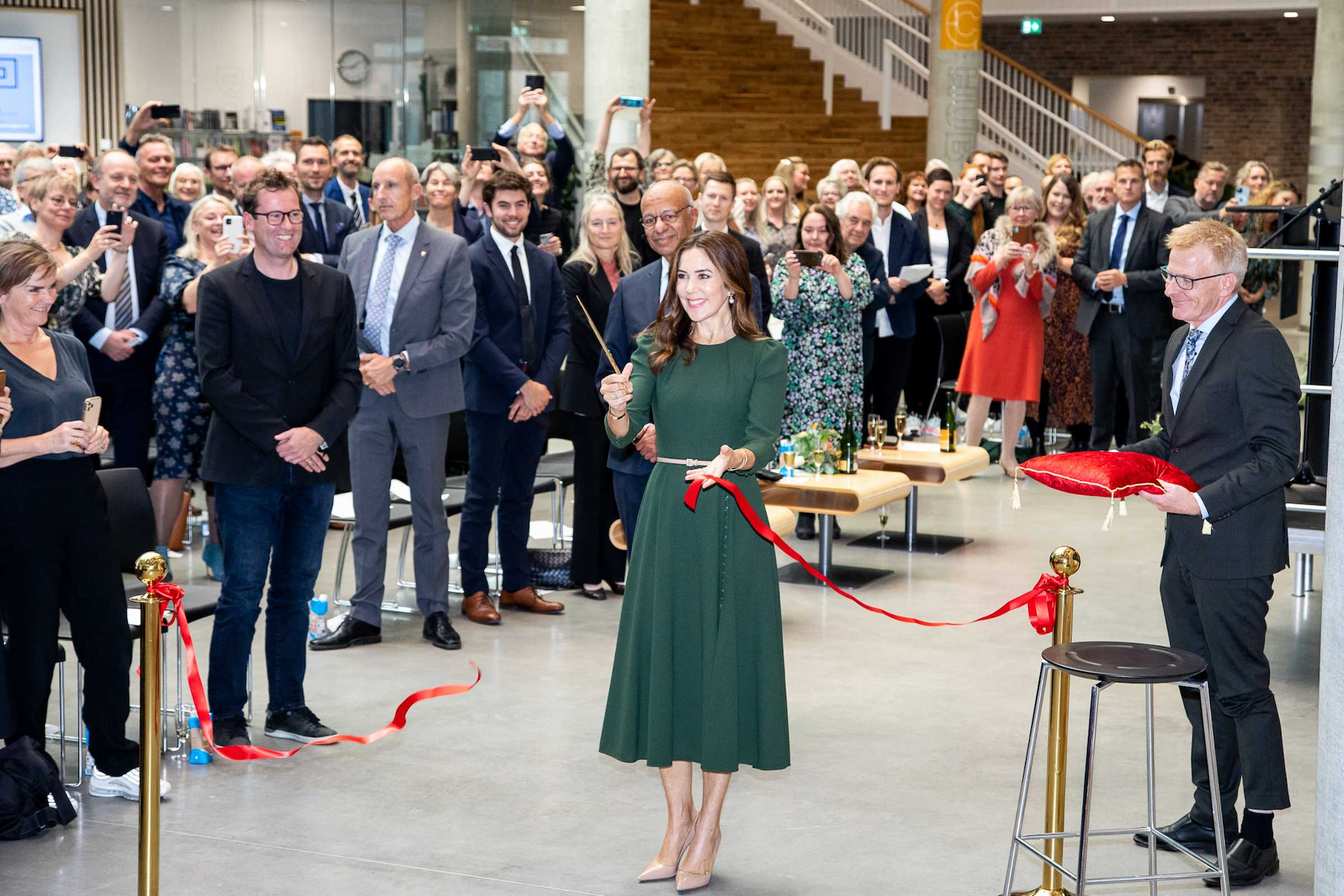In the small Danish city of Horsens, C.F. Møller Architects has created a university complex that unites higher education with urban life—creating synergies among students, staff, businesses, and residents. Constructed from 2017 to 2021, the roughly 354,000-square-foot VIA University College Campus Horsens is part of Campus Horsens, also designed by C.F. Møller Architects.
The complex comprises a slender 16-story tower and three atrium buildings. They’re joined together by a central inner atrium space that both connects the educational spaces and serves as a public space for the city’s residents.
The tower, called Innovation House, houses VIA University College on the lower eight floors, while the upper eight floors are occupied by Construction Center Denmark, an innovation space for start-ups and established companies. The joint occupancy creates opportunities for interaction among students and companies. At about 223 feet high, Innovation House is the tallest building in Horsens.
Each atrium building serves its own study program and features niches, staircases, and balconies for both living and learning, combined with open spaces and hubs for teachers and students. The atrium buildings’ shared spaces include the library, auditorium, and a publicly accessible cafeteria. The lower levels support activity-based learning, while the upper levels provide spaces for quiet and contemplation.
For the interior, also designed by C.F. Møller Architects, the complex uses materials such as red and gold brick, warm oak, and textiles in a few warm colors. The interior’s soft corners contrast with the more sharply cut exterior. The complex also includes artwork created by the renowned French artist Daniel Buren in collaboration with C.F. Møller Architects.

With a focus on sustainability, the design and construction sought energy optimization, minimization of building materials, low running costs, and an indoor climate that optimizes daylight. The compact design, with all functions under one roof, results in short distances among the education programs, short service runs, and a small facade area, which reduces the need for heating and cooling. Key interior elements, such as the balustrades are made of durable materials with long lifespans. And there are few structural walls, which makes the buildings flexible for future adaptations.
Owner and developer: VIA University College and Insero
Construction: CASA
Engineering: Rambøll
Architect and landscaping: C.F. Møller Architects







